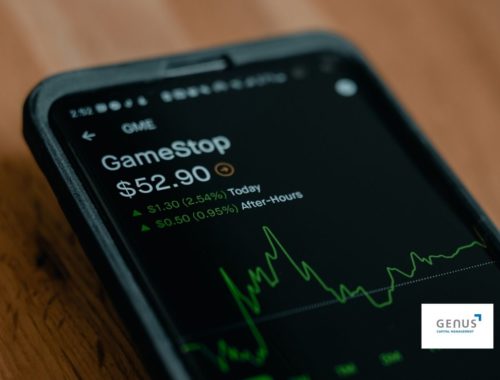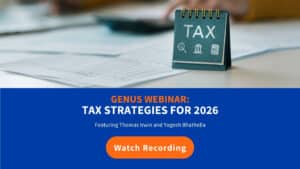Watch Friday Market Insights – Technology is allowing a diversity of investors, with Jill Bester and Wayne Wachell
This week's questions:
[00:00] : Intro
[00:22] : Why don’t we start with what we’ve seen in the markets?
[01:26] : With the Texas situation in regards to energy, there’s looking that there might be an increase in inflation due to the energy prices. What are your thoughts?
[01:57] : Bond yields continue their charge. What does this mean for our portfolios?
[02:29] : Yellen came out yesterday in support of the stimulus package. What do you think would actually take for the Senate to actually get this deal done?
[03:41] : How long term interest rates have risen but GICs have not moved and what would create that event?
[05:20] : The House Committee on Financial Services in the States yesterday bring to task that Reddit and Robin Hood and some other players in the GameStop debacle. One of the sentiments was changing the trade date from Q2 what impact without actually having the marketplace?
Jill Bester: [00:00:04] Welcome to Friday Market Updates. My name is Jill Bestor. I am an associate portfolio manager with Genus. And today we are joined by our chief investment officer and CEO Wayne Wachell. Good afternoon Wayne, how are you today?
Wayne Wachell: [00:00:18] Great. Great. Good to be here.
Jill Bester: [00:00:20] Great. Great. Well, it’s been an interesting week. Why don’t we start with what we’ve seen in the markets?
Wayne Wachell: [00:00:25] Well, there were some good news this week and some bad news, but generally, I think it’s good. Good. Overall, the good news was that the UK and US vaccines are expected to finish their vaccines by July August area. And one of the Wall Street brokers came out this morning and said they anticipate herd immunity in the US in 40 to 70 days. So those so good news on that front in terms of the vaccine front. On the flip side, we had extreme cold weather we all heard about in Texas. Amazing, amazing cold for that. They even had snow in Galveston and in that that made oil pop. And also with the good news and vaccine, interest rates went up quite dramatically. The 10 year yield in the US is like one thirty four, one thirty five as we speak kind of thing right now. So it’s rates went up, anticipating stronger economic growth, and that helped financials and energy also with the Texas situation.
Jill Bester: [00:01:24] Right. With the Texas situation in regards to energy, there’s looking that there might be an increase in inflation due to the energy prices. What are your thoughts?
Wayne Wachell: [00:01:35] I think this is more of a one time push of the cold weather kind of thing. I think as we go through this year here, as the global economy improves, there’ll be more demand for oil, obviously, and they’ll push energy and inflation up, I think, at that point in time. But this one time called event it’ll it’ll pass. The bigger issue is what happens in the course of this year. Right?
Jill Bester: [00:01:53] Right. Right. And we spoke about rates here. Obviously, bond yields continue their charge. What does this mean for our portfolios?
Wayne Wachell: [00:02:02] Well, it’s, I think, a good thing for our portfolios in that we have shorter interest rate bonds, short duration bonds, and we have more economic sensitive names in our portfolio. And that’s higher rates means higher yield curve means stronger growth down the road also helps financials and financials. So those are good things from that perspective. So it’s just going to help the I think the economic sensitive stocks move and some of the value stocks move as well.
Jill Bester: [00:02:28] Great. Yellen obviously came out yesterday in support of the stimulus package. What do you think would actually take for the Senate to actually get this deal done?
[00:02:40] Well, I think they’re close and I think the Biden administration have more of the cards. I think some of the more centrist senators will have some say like Joe Biden. I think they’ll probably will end up taking out the minimum wage. It’s not very timely right now. Just in terms of the impact was an independent study by the CBO and and the US government. And they were they said that they saw like a million and a half jobs lost. So it’s not a good time for it given that hospital. I mean, hotels and and restaurants are being squeezed right now. They’re making some trade off on that and maybe a cut here and there, I’d say. But it’s I think it’s close, but it needs just a few more modifications.
Jill Bester: [00:03:24] Right. Biden obviously has talked a lot about infrastructure and infrastructure. Takes us back to what’s happened in Texas, perhaps with the stimulus, we’ll get some infrastructure improvements in the states as well, which would be great. One of our questions came in from our client, how long term interest rates have risen but GICs have not moved and what would create that event?
Wayne Wachell: [00:03:50] Well, long term rates are driven more by the market and longer term inflation expectations. Short term rates are controlled by the central bank. And Powell, the head of the Fed, has said they’re going to keep rates low for a long time. They want to see inflation above two percent, three percent, maybe four percent. They also want to see the unemployment rate back down below four percent. So they’re going to keep that rate low as long as they can and let the a red line inflation in order to get more jobs, because getting those jobs really is the issue now in terms of equality across different different income levels and the unemployment rate drops below four percent. That really has an impact on income growth in the lower income demographics.
Jill Bester: [00:04:32] Right. Was interesting. Yesterday, Walmart announced that they would increase the minimum wage or average wage for their employees to fifteen dollars in the states and their shares dropped on that news. So it’s interesting to see the impact on the company bottom line, like you said, and moving forward with that.
Wayne Wachell: [00:04:50] Well, I think the bigger companies that have digital services and home delivery and a global footprint, a national footprint can do that. But if you’re in in a small town in Mississippi or Oklahoma, you don’t have that kind of luxury. So it depends. And also a lot of restaurants, retail workers, their incomes are driven by tips and that might mitigate that as well. So there’s there’s there’s issues here that the study had better, I think, before they do something.
Jill Bester: [00:05:18] Right. It was interesting to watch the House Committee on Financial Services in the States yesterday bring to task that Reddit and Robin Hood and some other players in the GameStop debacle. One of the sentiments was changing the trade date from Q2 what impact without actually having the marketplace?
Wayne Wachell: [00:05:43] I don’t think it’s going to have much of an impact, frankly, you know, I think what’s going on here is that the retail investors are back because of technology. And that’s a great thing, I think. And through innovation, through Robbins’s that great information, they basically allow zero cost trading because they sell the order flow to people like Senator. And and they can take they could have a bigger say what’s going on in the marketplace. The marketplace has been driven by the institutional players for many years now. So retail is getting into the game. I think it’s a good thing for the market. And some of the institutional players, like the hedge funds, they were they had they shorted GameStop two hundred and forty percent and they’re having that. There were other people pushing back on the other side and squeezing them. So that’s a good there’s more players. Well, either side of the trade in the marketplace, that’s a good thing. Robin Hood took a lot of flack. They just didn’t have enough capital to manage through the settlement of these trades. And that’s important. So they’re trying to solve that problem. They took a lot of flack. I still think there’s going to be more discussion around this. The SEC is going to look into this and what a group of people in a chat room get together and start trying to drive prices. That stock manipulation? I’m not sure. But it’s that there will look at this and I don’t understand why GameStop didn’t issue equity when the stock was two hundred dollars, companies like AMC and American Airlines did. But I think that would help alleviate the problem, the shortage of the stock. GameStop also. I don’t think it’s worth two hundred dollars. I think fundamentally it’s something less. And I think it’ll come back down to earth to get as close to that, close to its better value right now, I’d say.
Jill Bester: [00:07:26] OK, I agree with the one thing that concerns me is obviously retail investors, maybe not very astute, you know, playing the options market, which obviously has a high, high degree of risk. For those who don’t understand obviously, naked in an option, trade.
Wayne Wachell: [00:07:45] Can be very risky. But I would say just generally, trading costs are zero for a lot of retail investors right now. There’s online education. There’s good things going on for them. And I think it’s great for the overall market and for for investors generally.
Jill Bester: [00:08:01] Right righ. Cool. This’s been a great Friday Wayne. And I hope you enjoy the Australian Open over the weekend. I know who you’re rooting for.
Wayne Wachell: [00:08:10] Go Rafa!
Jill Bester: [00:08:13] And we thank you our customers and our prospective customers for joining us. If you have any questions, please don’t hesitate to reach out to your portfolio manager. We appreciate your business and we’ll see you next week.














